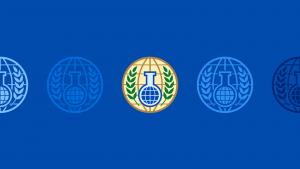In September 2020, the Federal Republic of Germany requested technical assistance from the OPCW Technical Secretariat, under subparagraph 38(e) of Article VIII of the Chemical Weapons Convention, in relation to the alleged poisoning of Mr Alexei Navalny.
In response, a team of experts from the OPCW deployed to Germany and independently collected biomedical samples from Mr Navalny, after receiving his consent. Upon Germany’s request, the samples collected by the OPCW experts were subsequently sent for analysis to OPCW designated laboratories.
The results of the analysis of these samples confirmed that the biomarkers of the cholinesterase inhibitor found in Mr Navalny’s blood and urine samples have similar structural characteristics as the toxic chemicals belonging to schedules 1.A.14 and 1.A.15 in the Annex on Chemicals to the Convention.
Germany requested that the Technical Secretariat share the summary of the report with all States Parties to the Chemical Weapons Convention and make it publicly available.
In October 2020, the Russian Federation requested that the OPCW Technical Secretariat consider dispatching experts to Russia. OPCW Director-General, H.E. Mr Fernando Arias replied that the Technical Secretariat was ready to deploy a team of experts to the Russian Federation on short notice, provided that, consistent with approach taken with Germany, the necessary legal requirements be fulfilled and Mr Navalny’s consent to access his medical file and samples in the custody of the Russian Federation be obtained.
At the request of the Russian Federation, the OPCW published correspondence between the OPCW Technical Secretariat and the Russian Federation from 1 October to March 2021 related to this matter.
At the request of the Federal Republic of Germany, the OPCW declassified and then published, on 3 August 2021, Germany’s original request to the OPCW for technical assistance, dated 4 September 2020, together with associated documents.

